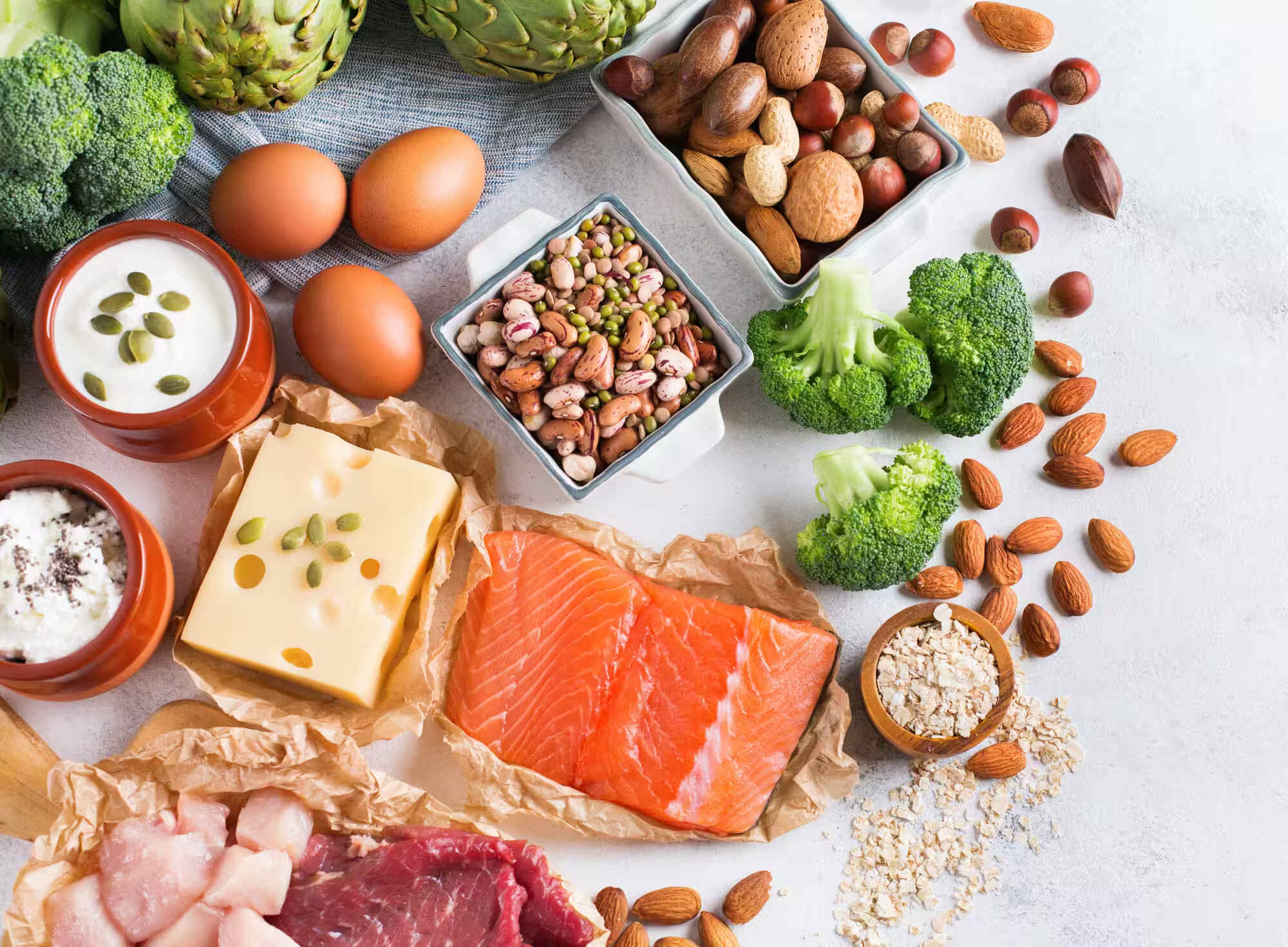
Proteins are essential molecules that play a crucial role in almost every function of the human body. They are the building blocks of life, involved in everything from muscle growth to immune response. But what exactly makes proteins so important? Proteins are made up of amino acids, which are organic compounds that combine to form proteins. These amino acids are vital for processes like repairing tissues, making enzymes, and supporting metabolic functions. Without proteins, our bodies wouldn't be able to function properly. From the food we eat to the way our bodies operate, proteins are everywhere. Let's dive into some fascinating facts about these incredible molecules and understand why they are indispensable for our health and well-being.
What Are Proteins?
Proteins are essential molecules found in every cell of the body. They play a crucial role in various biological processes, from building tissues to facilitating chemical reactions. Here are some fascinating facts about proteins:
-
Proteins are made up of smaller units called amino acids. There are 20 different amino acids that combine in various sequences to form proteins.
-
The human body can produce 11 of these amino acids, but the remaining 9 must be obtained through diet. These are known as essential amino acids.
-
Proteins are involved in nearly every cellular process. They act as enzymes, hormones, and antibodies, among other functions.
-
The structure of a protein determines its function. Proteins can have primary, secondary, tertiary, and quaternary structures, each more complex than the last.
-
Hemoglobin, a protein in red blood cells, carries oxygen from the lungs to the rest of the body.
-
Keratin, another protein, is found in hair, nails, and skin. It provides strength and protection.
-
Collagen, the most abundant protein in the human body, gives structure to skin, bones, and connective tissues.
-
Enzymes are proteins that speed up chemical reactions in the body. Without enzymes, these reactions would occur too slowly to sustain life.
-
Antibodies are proteins produced by the immune system to help fight off infections.
-
Insulin, a hormone that regulates blood sugar levels, is also a protein.
How Proteins Are Made
The process of protein synthesis is intricate and fascinating. It involves multiple steps and various cellular components.
-
Protein synthesis begins with transcription, where a segment of DNA is copied into messenger RNA (mRNA).
-
The mRNA then travels from the nucleus to the ribosome, the cell's protein factory.
-
During translation, the ribosome reads the mRNA sequence and assembles the corresponding amino acids into a polypeptide chain.
-
Transfer RNA (tRNA) molecules bring the appropriate amino acids to the ribosome based on the mRNA sequence.
-
Once the polypeptide chain is complete, it folds into its functional three-dimensional shape.
-
Chaperone proteins assist in the proper folding of newly synthesized proteins.
-
Post-translational modifications, such as phosphorylation and glycosylation, can further modify proteins after synthesis.
-
Misfolded proteins can lead to diseases such as Alzheimer's and Parkinson's.
Dietary Sources of Proteins
Getting enough protein from your diet is crucial for maintaining health. Here are some common sources:
-
Animal products like meat, fish, eggs, and dairy are rich in complete proteins, containing all essential amino acids.
-
Plant-based sources include beans, lentils, tofu, and quinoa. These are often combined to ensure all essential amino acids are consumed.
-
Nuts and seeds, such as almonds and chia seeds, provide a good amount of protein and healthy fats.
-
Whole grains like brown rice and oats also contribute to daily protein intake.
-
Protein supplements, such as whey and soy protein powders, can help meet protein needs, especially for athletes.
The Role of Proteins in Health
Proteins are vital for overall health and well-being. They support various bodily functions and processes.
-
Proteins help repair and build tissues, making them essential for growth and recovery.
-
They play a role in muscle contraction and movement, crucial for physical activity.
-
Proteins help maintain fluid balance by attracting water and keeping it within blood vessels.
-
They also contribute to acid-base balance, preventing harmful pH changes in the body.
-
Proteins can serve as a source of energy when carbohydrates and fats are not available.
-
Adequate protein intake supports a healthy immune system, helping the body fight off infections.
-
Protein-rich diets can aid in weight management by promoting satiety and reducing overall calorie intake.
The Power of Proteins
Proteins are essential for life. They build muscles, repair tissues, and support immune function. Without them, our bodies wouldn't function properly. From the enzymes that speed up chemical reactions to the antibodies that fight off infections, proteins are involved in nearly every bodily process.
Eating a variety of protein sources ensures you get all the essential amino acids your body needs. Meat, fish, eggs, beans, and nuts are excellent choices. Remember, not all proteins are created equal. Some are complete, containing all nine essential amino acids, while others are incomplete.
Understanding proteins helps you make better dietary choices. Whether you're an athlete, a student, or just someone looking to stay healthy, knowing the role of proteins can make a big difference. So next time you plan a meal, think about the proteins you're including. Your body will thank you.
Was this page helpful?
Our commitment to delivering trustworthy and engaging content is at the heart of what we do. Each fact on our site is contributed by real users like you, bringing a wealth of diverse insights and information. To ensure the highest standards of accuracy and reliability, our dedicated editors meticulously review each submission. This process guarantees that the facts we share are not only fascinating but also credible. Trust in our commitment to quality and authenticity as you explore and learn with us.
